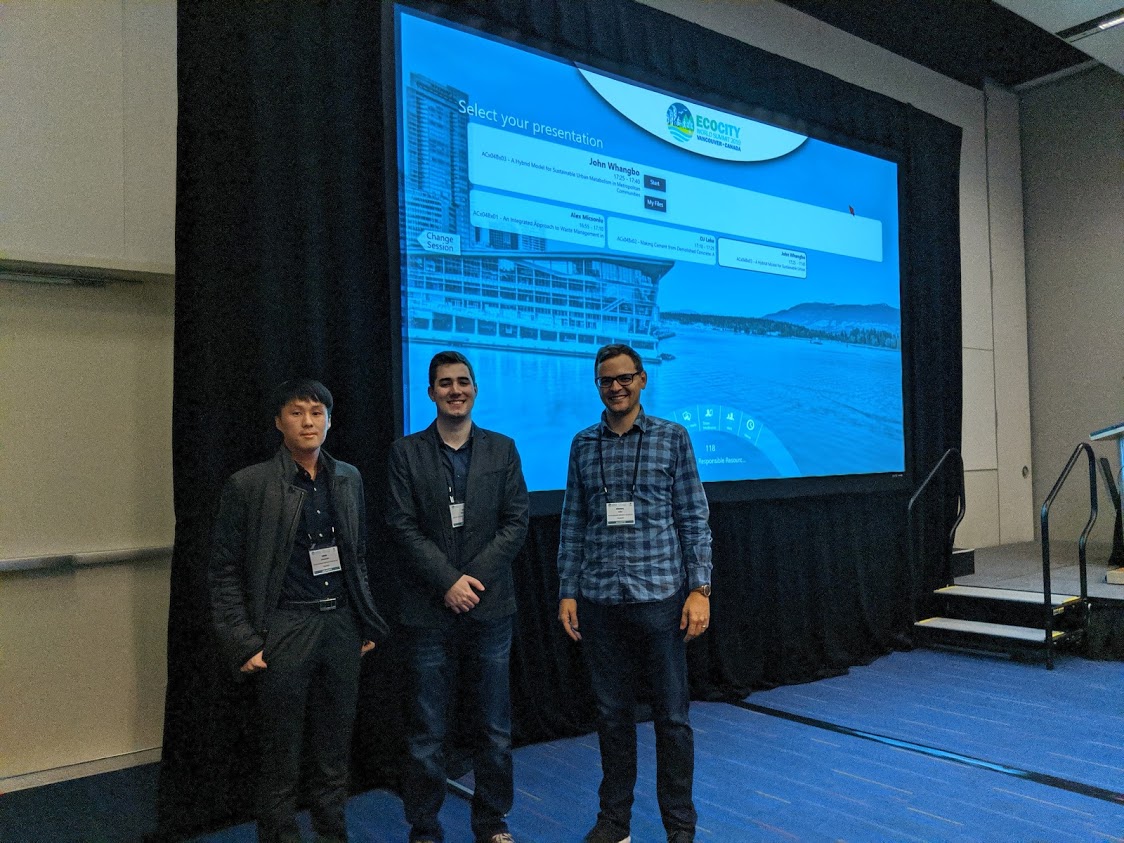It’s not the most glamourous topic, but we create waste every day. Out of sight can be out of mind, with waste streaming seemingly smoothly into municipal and industrial systems. However the alarm is being sounded – from plastics in the ocean, to landfill leachate – we need to better manage our outputs.
In their course on Algorithms Research and Development, teams of Computer Information Technology (CIT) Diploma students work on a research project. This past year, in celebration of BCIT’s co-hosting of the Ecocity World Summit, data-related sustainable cities projects were encouraged. Two teams were even invited to present their waste reduction projects at last week’s summit.
“I’m proud to see the students work to make our cities a better place to live,” says Dr. Michał Aibin, CIT faculty, who was supervising students in their projects.
Do you have an idea for a Computing student project? Check out Industry Sponsored Student Projects.
A hybrid model for sustainable urban metabolism in metropolitan communities
John Whangbo presented on behalf of his team members, Carson Xu and Son Nguyen. The team looked at urban metabolism to assess how the world’s leading “ecocities” are reducing their waste output, and thus, reinforcing the resilience of their circular metabolism.
“The trending issue of climate change, along with its disturbing implications, has led to a rise in interest for a more sustainable way of life,” explains John Whangbo.
The team started by using case studies for the Sino-Singapore Tianjin Ecocity flagship cooperation project between the governments of Singapore and China, and Victoria, Canada’s Dockside Green project. Drawing on data including key performance indicators, planning principles, and adherence to international green building certification guidelines, the team calculated the quantitative effectiveness of these ecocity models.
The team was able to tease out which indicators were shown to be highly effective across both case studies in very different cities. According to John, “this model ultimately strives to serve as a flexible template for achieving circular urban metabolism.”
An integrated approach to waste management in Metro Vancouver: challenges and opportunities
Alex Micsoniu represented his team, which included Dominic Triwiang and Sam Hadavi. Facing increasing urbanization of world population – predicted at 68% of humans living in cities by 2050 – this team sought to analyze city waste production problems and propose solutions.
Unsustainable heating of buildings generates approximately 100 000 tonnes of greenhouse gas emissions City of Vancouver alone. Yet solutions exist, such as the sustainable district heating system used in the Southeast False Creek community which generates heat through its sewer system. This system reduces greenhouse gas emissions by 50%. The team showed that if this model were replicated throughout the city of Vancouver, the environmental benefits would be huge.
They also delved into data on waste of edible food, which could represent a loss of $17 billion per year in Canada. Finally, they studied the potential for Waste-to-Energy (WOE) facilities and opportunities for uses of WOE by-products.
The weather impact on efficient home heating with smart thermostats
Beyond Ecocity, but staying with the theme, Dr. Aibin also recently published a paper comparing current smart heating algorithms with a proposed Weather-Based Heating Algorithm. Using data from 2015-2018, he simulated ways to address home overheating, a significant source of wasted energy in North America on sunny days. The algorithm resulted in a 30% reduction in overheated time, as well as a 20% reduction in energy.
Innovative and inspiring
Summarizing his experience, John tells us, “Never in my life would I have thought that I would be a presenter in an Ecocity summit; as nervous as I was, it was an unbelievable experience. I found all presentations to be truly innovative and inspiring.”
